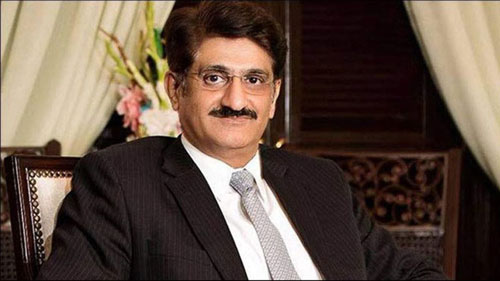Sindh Chief Minister Syed Murad Ali Shah has said that the pivotal role of human capital in sustainable economic growth and inclusive development cannot be overstated, however, the benefits of human capital investments often take a considerable time to materialize and may not always be immediately visible. This he said while speaking at the launching ceremony of World Bank’s report on ‘Pakistan Human Capital Review: Building Capabilities throughout Life’ at a local hotel on Tuesday.
Murad Ali Shah said that the role of human capital in sustainable economic growth and development could not be ruled out, but the benefits of human capital investments often take time to materialize and may not always be immediately visible. Human Capital Review (HCR) is part of the World Bank’s broader ‘Human Capital Project’ that was launched in 2018, the CM said and added that the Review assessed the challenges and opportunities to improve Pakistan’s human capital outcomes.“Several priority outcomes that require improvement, including early childhood development, child malnutrition, out-of-school children, learning poverty, and labor market outcomes of the poor are analyzed to inform human capital development policies,” he elaborated.
Murad said that the Human Capital Review made by the world shows that Pakistan could realize substantial economic growth by controlling its population growth rate, investing more in the supply and quality of health and education, and bringing women into the labor force. Giving an example, he said that if Pakistan invested in human capital at the level of its aspirational peers, while ensuring its full utilization over the next 25 years — to 2047, the 100th anniversary of its founding—its GDP per capita could grow eight times more than under business as usual.
The chief minister said that unprecedented shocks, like the COVID-19 Pandemic and the devastating floods of 2022, have exacerbated the human capital challenges faced by the country and reversed several human capital gains that were made in the past few years.
He added that the human capital index in Pakistan was 0.41 which indicated the country’s sub-par human development outcomes, however, there was immense potential to synergize efforts and undertake substantial investments centered on human capital enhancement for improved outcomes.
Talking about his government, the chief minister said that the Sindh government took several initiatives to tackle the COVID-19 Pandemic such as creating a dedicated fund, repurposing the development portfolio, holistic public health response, direct cash grants, ration distribution, and proactive communication that demonstrated how effective governance could yield desirable laudable results.
Murad said that the 2022 floods in Pakistan have caused catastrophic impacts in Pakistan, especially in Sindh. “The devastation in Sindh has severely affected 24 districts that have been declared ‘calamity-hit with more than 2.1 million houses damaged,” he said and added every conceivable sector and facet of life has been adversely affected.
The Sindh government has undertaken several initiatives for post-flood resilient recovery, rehabilitation, and reconstruction for the people of the province in a climate-resilient manner, Murad Shah said and added that in addition to providing Immediate Shelter, food, water, health, and education to the affected population, his government has devised a comprehensive strategic action plan.
Talking about the plan, he said that it included providing long-term/low-cost Climate-Resilient Housing, -reviving agricultural activity & Livelihood including Livestock, rebuilding damaged Irrigation infrastructure, -rehabilitating damaged provincial highways and internal road Infrastructure, restoring water & Sanitation facilities, and – rehabilitating damaged education and health facilities. The CM said that 29.3 percent of the population in Sindh was under the poverty line in the calamity-hit districts and another 9.3 percent have been added due to the floods.










